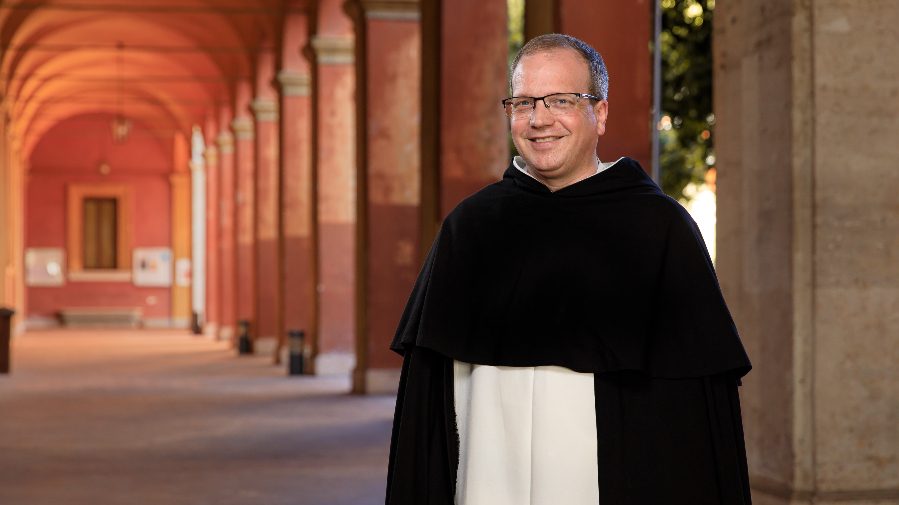A new generation of young people are deeply invested in the study of St. Thomas Aquinas, according to Father Thomas Joseph White.
The Dominican theologian and rector of the Angelicum in Rome said that he has witnessed both a new academic emphasis on historical accuracy regarding the 13th-century saint and attention to his potential contemporary relevance.
“We’re seeing a modest renaissance of Thomism in the Church, particularly in the English-speaking world,” White told CNA on Sept. 22.
“And this is something that people are now paying more attention to in the academic world because we’re seeing that there is a rise in interest in Aquinas that is not related to past ideas of magisterial homogeneity. It’s really more about people on the grassroots level, trying to think through the doctrine of the faith and bring theology to their local communities and to the broader Church through rigorous investigation and responsible reflection.”
White spoke as the 11th International Thomistic Congress is taking place in Rome Sept. 19–24.
“I think it’s the most important Thomistic conference internationally to take place in decades,” he commented.
Featuring more than 130 speakers, including Father Simon Gaine, Father Wojciech Giertych, and Father Gilles Emery, the congress has covered a wide range of topics from historical reflections on St. Thomas Aquinas to contemporary philosophical topics in metaphysics and ethics.
“It’s been an amazing last few days because we have had speakers from all over the world, from the Far East, from the United States, a healthy representation from Central and South America, Africa, India, and of course, Europe. It shows the kind of catholicity of engagement in Aquinas as a common doctor for Catholic thought,” White said.
Pope Francis received participants from the International Thomistic Congress in an audience in the Clementine Hall of the Apostolic Palace on Sept. 22.
Speaking entirely off the cuff, the pope underscored the importance of contemplation in intellectual life.
“Before talking about St. Thomas, before talking about Thomism, before teaching, we must contemplate,” Pope Francis told the Thomists.
In a written reflection distributed to the congress participants, Pope Francis wrote that St. Thomas Aquinas’ “search for the truth about God was impelled and permeated by love.”
Ahead of the papal audience, Cardinal Luis Ladaria, the prefect of the Dicastery for the Doctrine of the Faith, offered Mass for the congress participants in St. Peter’s Basilica. A schola made up of students from the pontifical university sang for the liturgy.
Students from the Pontifical University of St. Thomas Aquinas in Rome sing at a Mass in St. Peter’s Basilica for the International Thomistic Congress. pic.twitter.com/3n5k9r3FS3
— Courtney Mares (@catholicourtney) September 22, 2022
The 11th International Thomistic Congress, jointly organized by the Thomistic Institute and the Pontifical University of St. Thomas Aquinas, is the first congress of its kind to be hosted by the pontifical university in Rome in nearly 20 years.
Father Dominic Holtz, the vice dean of philosophy at the university, told CNA that the congress has addressed new questions on “Thomistic engagement with neo-Confucian philosophers and transhumanism — sorts of things that we probably would not have even thought of asking 20 years ago.”
Holtz added that “a hallmark of Thomism is that it remains both able to engage new situations and retains a life in the classic perennial questions that every generation has to wrestle with.”
“For instance,” he continued, “there was a talk yesterday about how we understand Revelation. What does Revelation mean and how does it work when we engage the Sacred Scriptures? … And philosophical questions, like just what is the state of the human soul after death?”
“Those sorts of questions will always remain with us and they are being asked with new and interesting perspectives in light of what has been looked at before,” he said.

